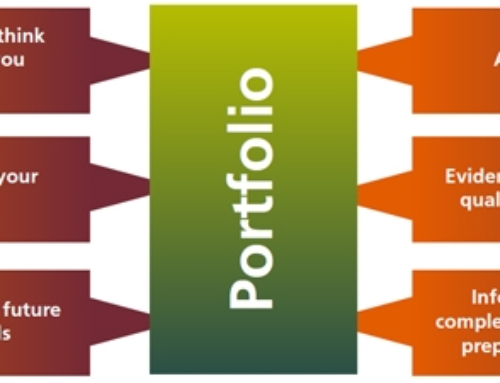If you have been searching for employment, you have come to the right place to find out how to get a Job? You may believe that you just cannot find a job, but if you change your mind-set and use practical advice, then you can. Read the step-by-step guide on “how to get your dream job” for excellent advice that will help you locate the best possible job for you.
This article is all about helping those seeking new employment. There are series of short instructions and articles focusing on career development, self-assessment, Resume writing, interview techniques, searching for job, and more. Just follow the steps and act.
For how to get a Job? Check the program summary here:
Self- assessment
Whether it is the first job you are looking for or a career change, the first step you should take is to identify your skills list. Get to know yourself, do a self- assessment test. Self- assessment is the process of gathering information about you, in order to make an informed decision.
- Conduct a self-assessment test
- Take inventory of your skills
- Check the job descriptions
- Prepare your skill map
Skill Audit
You can download and print out the skill Self-Assessment Audit test and check your score against the scoring system given at the bottom of the test. This will help you plan your improvement, and priorities the areas, which need attention. If you decide to do any form of assessment, you have to be very honest, there is no contest, and nobody is judging you.
Notes: There is some difference between abilities and skills for resume purposes. Though there is a large grey area in the definitions used in job hunting and by employers, knowing the difference can help you evaluate your expertise. Remember that expressing them correctly is most important.
While some companies have started rejecting overqualified candidates, this shouldn’t discourage you from sending your resume to a company you want to work for. Make a skills list for your resume before you begin writing it. Use a job skills list to take full account of what you have to offer. In addition to the skill list related to your professional life, you have to prepare the following as well.
- Make your first list (add more to it as you progress)
- Your personality, Ex: Are you shy or outgoing? What motivates you? What makes you happy or sad?
- Your interests
- What are your hobbies? What do you enjoy doing?
- Your achievements, In personal life as well as career wise
- Your skills, Computer programs, languages…
Job Description
After you have completed your skill list, collect as many as possible job descriptions relating to your dream job, make a second list for each job (List the skills the employer is seeking) and use the same keywords as in the job description.
- Compile the list of skills required for your dream job.
- Compare your skill list with the skill requirement list.
- Identify your missing skills.
- Get your action plan to remedy the situation
It is essential to prepare your plan of action to fill the gaps in your skills if you want to get your dream job. Next is your resume or CV.
Resume Writing
In the competitive, internet-driven world of job searches, your resume represents you to potential employers. It serves as your tool to attract attention, get the interview, and get the job. A great resume will make you stand out from other candidates by showcasing your aptitudes.
A well-written resume can make a difference between being stuck at your current job and getting an interview to land the job of your dreams.
Think of your resume as your sales pitch – you need to sell yourself in the best possible way. Invest some time and research into preparing your resume. Your resume should be a one-to-two-page document. The heading of the resume should contain your name, address, and contact information. The body of the resume should be broken into the following sections:
- Career objective
- Profile – Summary
- Professional experience
- Achievements and Scholastics
- References
How to Prepare Your Resume Summary
To prepare your resume, first complete the inventory of your skills (Skill Matrix), before you begin writing your resume. Use your skill matrix to take full account of what you have to offer. Follow the checklist above to structure your resume. more detail on resume writing is given bellow, plus further tips for powering up your resume.
- Career objective
- Profile – Summary
- Professional experience
- Achievements and Scholastics
- References
Cover Letter
The Application Cover Letter is as important as the resume itself. Since it leads to the first impression on the applicant, it is imperative that you write an effective application letter to make a good impression. Application Cover Letters are Written in Response to a Known Vacancy
These are:
- A letter in response to a known job vacancy,
- A letter inquiring about possible vacancies and
- A networking letter which asks for assistance with the job search.
More Tips
- First: Check your skills and attributes match the employer’s needs.
- Second: More than 91% of selected candidates had included their contact details on their resume, cover letter, and job application and the information was consistent.
- Third: Quite a few of successful candidates had somehow captured the corporate language of the company.
- Fourth: Not all the resumes were perfect. But if not, flawless they were close.
- Fifth: The writing was easy to read, the format was clean and there were usually never more than two fonts used and two font sizes.
- Sixth: The writing had been skilfully crafted to include accomplishment statements with measurable results using power words to make the points.
- Seventh: Almost every selected candidate had been articulate and to the point in their cover letter. Many of the cover letters had been addressed to a specific person.
To make the Application Cover Letter an effective one, use positive and professional language.
Job Search
To your dream job, first you must answer these four questions:
- Why do I want to get a new job?
- What type of company do I want to work for?
- Where will these jobs be advertised?
- Do I have the skills I need to do the job I want? (Check your skill matrix)
You should treat your job search as a project. You need a plan, with a clear goal (detail the job, the company, the location, the salary,..), planning (Completing your CV, attending training courses, brushing up your skills), schedules (job search, tracking applications you have made, number of responses, number of interviews attended,..), acting quickly (if you see a vacancy you want, get your application over to them) adjusting (if your job search isn’t going to plan, don’t just keep knocking on the same old doors. Be prepared to switch strategies, review your CV, check you’re interviewing techniques, acquire more skills, and try different avenues towards employment.)
Making plans
You should note down some of the key things you want to get out of your job search before you embark upon it. If you want your job search to be successful, you should treat it as a project.
The key elements of successful projects are:
- Setting goals – Your end goal is to get a job, but you have to detail the job, the company, the location, the salary, and anything else that might be important to you.
- Determining deliverables – Along the way you can check if things are going to plan. Number of applications made, number of responses, number of interviews attended, …
- Setting schedules – It’s impossible to know exactly how long your job search is going to take, but you can set a few milestones, such as completing your resume, contacting recruitment agents and so on…
- Gathering resources – You’re not going to need many resources to conduct a job search, but you will need some. Regular access to the Internet to check responses to applications is one.
- Acting quickly – if you see a vacancy you want, don’t sit twiddling your thumbs, get your application over to them. Obviously don’t skip the important step of tailoring your resume.
- Adjusting often – if your job search isn’t going to plan, don’t just keep knocking on the same old doors. Be prepared to switch strategies and try different avenues towards employment.
More on Job Search
To achieve success in your job search, you must target a wide range of employers and use all the available resources. Yes, it’s time-consuming, but it will pay off with more and better job leads, more interviews and more job offers!
Key Steps to find the job
- Upload your CV conducting an online job search is a must, make sure you upload your CV to more than just one job site to attract the widest audience possible.
- Attend job fairs: you can directly approach a great number of employers in one day, handing out your CV to company representatives.
- Register with your local recruitment agents, visit them, and try to get feedback on your resume. Get to know their counsellors and more important, let them get to know you.
- Keep networking with ex-tutors, colleagues, relatives, and anyone who is in a position to help. Being told of an opportunity or being referred is an accepted strategy.
- Read the relevant media: the vast majority of jobs that are currently available are still advertised in trade magazines.
- Direct approach: If the companies you’re targeting aren’t at the fairs, or registered with recruitment agencies don’t worry, get in touch with them directly. Google the company and contact them directly.
Interview
An effective cover letter and well written resume should lead to job interviews, if you are not getting interviews, check your job search strategy. It is important to review your resume regularly and adopt your covering letter for each job.
Interviewer aims to determine three things before he/she makes a hiring decision:
- Can you do the job?
- Are you motivated to do the job?
- Are you a good fit in the organisation?
Preparation is an important part of the interview process. The time you spend preparing prior to the interview will be time well spent. The following are some tips on what you can do to prepare yourself before, during, and after a job interview. For more information click on the relevant articles name.
Before the Interview
- Review the Job Specification and Position Description.
- Learn more about the company by visiting their web page.
- Review your résumé and be prepared to discuss your relevant skills.
- Bring extra copies of your résumé and a notebook.
- Dress for the occasion (should reflect maturity and self- confidence. Be neat, clean, and dress in good taste).
- Find out where the interview will be, obtain clear directions, and confirm the time. Plan to arrive 10- 15 minutes early.
During the Interview
- Relax! Think of the interview as a conversation, not an interrogation.
- Be enthusiastic, confident, courteous, and honest.
- Listen to the questions carefully and give clear, concise, and thoughtful answers.
- Convey interest in the organisation and knowledge of the position.
- Ask relevant questions about the job or the company.
- Present a list of your references and any letters of recommendation that you may have to offer.
- End the interview with a firm handshake and thank the interview panel for their time and consideration.
After the Interview
- Send a concise 1 – 3 paragraph thank-you letter or email within 24 to 48 hours of the interview.
- Reiterate your interest in the position; mention anything you know, it reinforces you as a good fit for the job, and your contact information.
- If you are not selected for the job, it is OK to politely ask an interviewer which area(s) you could improve on in the future!
More resources to assist you with your job search:
It is essential to prepare your plan of action to fill the gaps in your skills if you want to get your dream job.
There are 48 questions, split into 8 groups in this test. Read each question and tick the value, which you feel is most appropriate to you.
Video: How to create your dream life? Plan & design your future
Interested to make Video CV
- Inspiring Interns believes that one answer to make sure your CV is given the attention it deserves is using a video in which you outline your skills, ambitions, and reasons for applying to the job in question. Have a look at this video CV infographic, it should help you get started, with best practice advice and some information on how to get your video out there.





